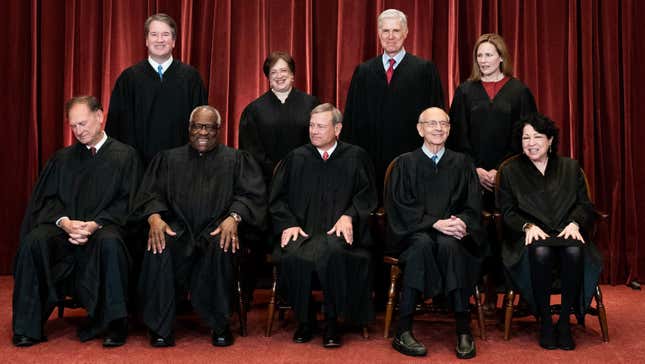The Supreme Court Is Spitting in Our Faces
Every day that passes in which the justices don't block Texas' abortion ban is a tragedy.
AbortionPolitics

It’s been 82 days since the Supreme Court cruelly sat on its hands and let Texas’ blatantly unconstitutional six-week abortion ban take effect, nullifying Roe v. Wade (or what’s left of it) in the second largest state in the country. The Justices claimed they couldn’t intervene because of the law’s unique citizen enforcement mechanism, which a garbage lawyer cooked up precisely to make it harder to block. And today, the Court once again had an opportunity to block the law, SB8, and took no action. It all feels like a taunt—they’re doing nothing because they can.
After abortion providers appealed and the Department of Justice sued Texas, the Supreme Court fast-tracked the case to be heard during this term—a move that’s not only rarely used, but also sets the expectation that the Court will make a swift decision. High-profile examples of fast-tracked cases include Bush v. Gore on the 2000 presidential election, the New York Times’ reporting on the Vietnam War aka the “Pentagon Papers,” and President Richard Nixon’s attempts to suppress the audiotapes from the Watergate scandal.
-

-

-

-

-

-

-

-

-

-

-

-

-

-

-

-

-

-

-

-

-

-

-

-

-

-

-

-

-

-

-

-

-

-

-

-

-

-

-

-








































